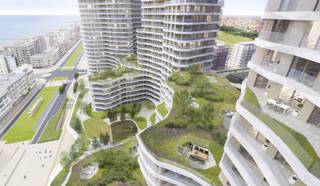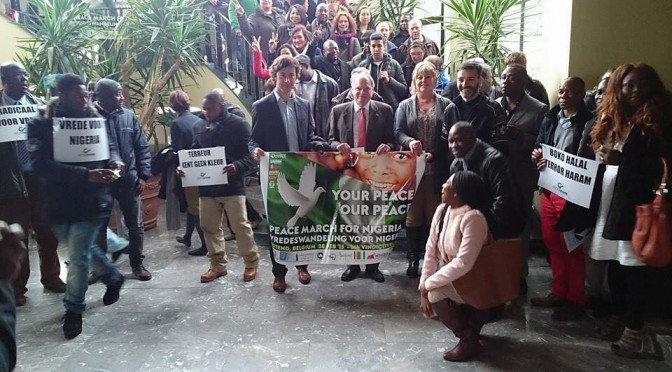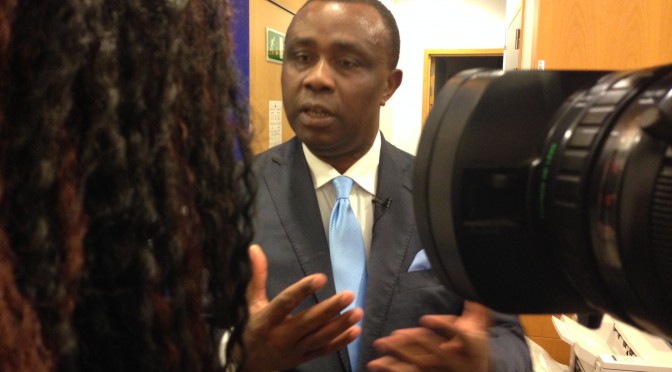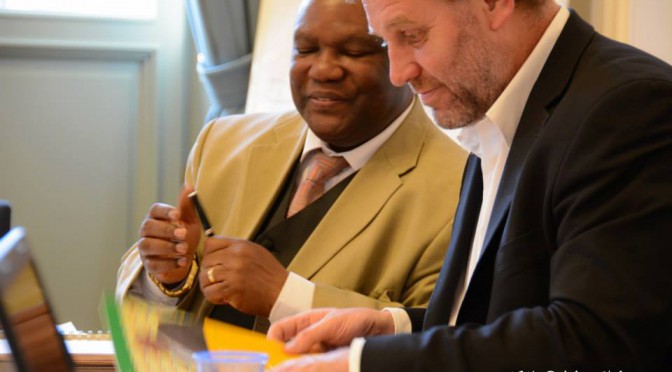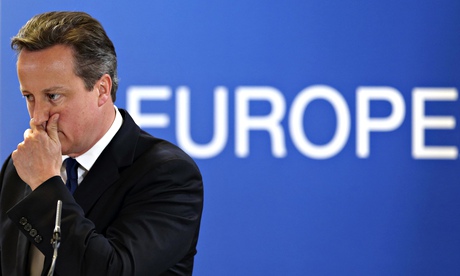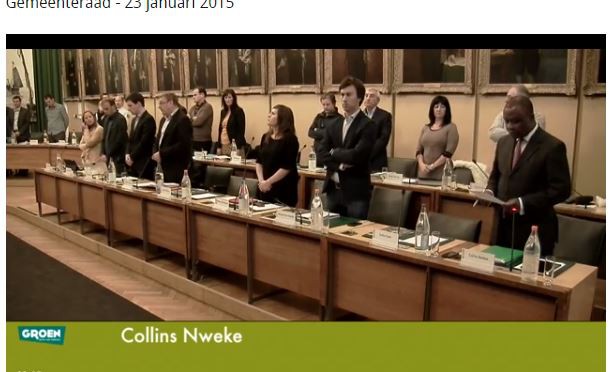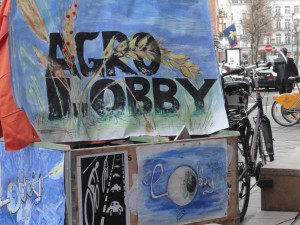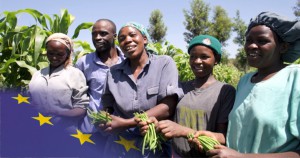In this speech delivered in Ghent at the launch of a self-help group of Sub-Sahara Africans in Belgium, I argued essentially that achieving social cohesion in Europe requires its Diaspora to take their life into their hands. Community based, self-help organisations is one of such engagement tools and a purposeful Europe should take this into serious consideration so that its Justice & Home Affairs Directorate is adequately empowered to develop sharper tools to cut through the current Diaspora integration bottlenecks
Full text of the speech is as follows:
Protocols
I am happy to be present with you today to chair the official launch of this great initiative called Amicable Association of Belgium. I thank you, Mr Chairman, for the invitation but more than that I wish to express delight at the fact that you deemed me worthy, out of a host of other supremely qualified individuals, to preside over this historic occasion.
This occasion is historic for several reasons but before delving into the reasons, allow me to remind us of why we are gathered here; this on the risk of boring you with something you already know. Clarity demands that I do so. We are here to launch the Amicable Association of Belgium vzw, an Association with the good peoples of Sub-Saharan Africa as members.
One of the reasons today is historic is that it does not often happen that Belgian-Africans take time to study their intending operating environments carefully before embarking on permanently establishing their organisations And projects. But you chose to do things differently. The Amicable Association of Belgium was initiated 4 years ago. To be precise, it was founded on 24 April 2010 and its founding fathers and the leadership have spent the past 4 years studying the grounds on which they wish to be operating, building and expanding their networks and on the basis of the positive responses they got, they felt that the idea is beyond a one-night stand.
The ideas that propelled the founding fathers to form the Association still hold through today as it did yesterday and will do tomorrow. I will briefly be examining those ideas with you shortly but let me stay a while, if I may, on why today is special and historic.
The second reason I believe this occasion is historic is because the initiators and the Executives in my humble opinion, have not committed the error of judgment common with most Associations of Africans before them. That your members have African background does not automatically qualify you as an expert in international development matters. You took the conscious decision to localise your operations within Belgium catering for the welfare of Sub-Saharan Africans here. Agreed, some of the judgments of most African Diaspora organisations to also delve into developmental projects are driven by an uncontrollable urge to see an improvement in the lots of our brothers and sisters back home in Africa. However the truth of the matter is that as the Associations are struggling to settle matters back home in Africa, they are equally struggling to irk out a living for themselves out here. Often, the result becomes the same with a footballer that attempts to kick a ball with both feet: you miss the ball and fall flat. In other words the Amicable Association of Belgium understands what prioritisation is all about and has made it the cornerstone of their aims and objectives. Considering your natural disposition to collaborating with others, let me hope at the same time that you will close ranks where the needs arise with relevant authorities or organisations if you see worthy projects to be implemented back home. Sometimes playing a secondary, rather than a leading role, contributes immensely to the success of developmental projects particularly when international development is not part of your core business.
There are numerous other reasons this occasion is historic but for reasons of time constraint, I shall limit it to above two and this third and final one. Looking round, you will notice that there are numerous leaders of African organisations. It is often difficult, if not impossible, to see leaders of African Associations converge together, united by a common goal. There is an air of camaraderie which resulted from the fact that leaders of Amicable Association Belgium crisscrossed the length and breadth of this country, inviting the leaders of the organisations and reassuring them that the winning formulae of tomorrow is not competition but cooperation. The competitive spirit of yesterday will have to make room for spirit of cooperation that rules today and shall determine the outcome of tomorrow. They have listened to the able Chairman and the General Secretary and are justifiably part of the history-makers of today.
The main aims of the Amicable Association Belgium are simple, maybe generic, but very important, if approached properly. The Association wants to unit specifically the Sub-Saharan Africans. Once united under a platform, they then would inform, educate, facilitate better understanding of and interaction with, the host community. Finally they would aid better integration. The immediate question that arises is how exactly do you intend to do this? Precisely what are the means through which you would be achieving your organisational aims? In my interactions with the leadership of the Amicable Association Belgium, I came to know that they know that emancipation does not come easy. Can anyone point me to any individual, group or community on whose laps power just fell without having to agitate for it? Political, economic or social power never come cheap or easy. You do not wait for it. You go for it through little steps, one at a time.
Drawing from my experience, first and foremost as African, a founding Chairman of Ostend Municipal Advisory Council for Ethnic Minorities and currently an elected Municipal Legislator on a second term of office in Ostend City Council, I understand the dire need for a self-help Association with the aims and objectives that you have set forth.
Unity of Purpose
It is heartwarming that the Amicable Association Belgium is not just talking about unity as one of its core businesses but is already taking actions to bring it to live! I like the mindset that we can achieve more when united. Your decision to cooperate rather than compete is laudable. You have also not spread your fishing net so wide such that you impede the volume of fish to efficiently catch. You have deliberately targeted the Sub-Saharan Africans as a specific group. That is very good. From a management – marketing perspective, it is always better to identify your target market. I must say well done
Information is Power
That you have included information as part of your core business is commendable. The more you inform our people about their rights but equally importantly, their obligations within the host community, the more they are sensitised and the closer you come to an empowered community. Yes empowerment, because when you empower a people, you have sent ignorance and poverty further away from their doorsteps.
Education is Key
I am sure that the inclusion of education as an area of concentration by the Amicable Association Belgium is deliberate. Education, just like information is power. I can only hope that the sort of education that Amicable Association will devote time to will include issues that target our children, the second and third generation Africans here in Belgium. When you begin to develop your programme of actions, I do expect that the following questions will arise:
How do I as African parent facilitate the education of my child?
Do cultural differences, ignorance or racism play a role in the choice of studies that schools recommend for African kids?
To what extent is education key to emancipation?
It is my hope that Amicable Association will begin to ask penetrating questions about why we as African Diaspora are over-represented in the Belgian unemployment index, why our kids are more likely to end up in vocational education classes even when their natural talents could accommodate academic lines of study, if they remain in school at all; why are our kids less likely to pursue higher education than their non-African peers? Is it us or is there something fundamentally wrong with the system that things are tilted against us? These are bits and pieces of issues that need to be explored.
It may be too late for some of us as first generation African Diaspora but please let us, together ask the right questions as responsible parents and by so doing, we will be able to prevent the woes that befell us from befalling our children and generations to come.
Integration is inevitable
There is a huge danger in the ‘we’ and ‘them’ mentality. We and them discourages inclusion and encourages segregation. The bridge is integration. There are sets of rules that make this society the relatively peaceful haven that it is, where everyone can pursue his or her dreams in freedom and with liberty. I cannot make excuses for racism but we must differentiate racism from citizens who are genuinely concerned about some of us who show no respect for the values that make this society a peaceful and lovely place to reside and work. Thankfully such individuals in our community are in the minority but unfortunately such minorities mess things up for the majority of us. They breed reactions that can be construed as racism. We all have a collective responsibility to work against such behaviours. More efficaciously, we have a responsibility to prevent such behaviours from rearing their ugly heads in the first place. The answer is INTEGRATION. I define integration simply as a process of adapting your way of life to suit the norms and values of the host community. Does this mean that overnight we would have to give up eating pounded yam with egusi / ogbono and embrace frietjes with half-done meat and mayonnaise? Certainly not. Keep eating your pounded yam if frietjes is not your thing but for a start, show some interest in understanding the cultures, habits, traditions and values of your host community. Show interest and learn the language. Incidentally the vast majority of members of the host community are not expecting you to speak in accentless dutch or French. An effort is enough, as I’m sure you know. After over 20 years of residence in Flanders, Belgium, I still struggle with my Dutch grammar but it has not prevented my constituents from electing me to represent them. I still get ‘harassed’ by a few who spot one or two language flaws in my work. When it happens, I smile and I am reminded of President George W. Bush on whose account some segments of the American press have a field day because of his ‘bad’ English. I recount this just to let you know that such things do not matter. The average genuine Belgian wants to see you make genuine effort to integrate starting with learning their language. I do not expect that Amicable Association Belgium will begin to organise language classes but I am sure you can support the numerous authorities and organisations that are specialised in that field of work. Through you, they can reach the Africans. With your cooperation Africans will see the need to voluntarily sign up without been prompted. Professional integration is also a major issue. You may not be in a position to take on all of these issues but you as a self help organisation can facilitate some of these efforts that will benefit one and all.
Conclusion
I want to conclude by saying that the central thesis of my message to you tonight is that we are all in it together. A self help Association like the Amicables has its role as a driver and enabler cut out for it. As an Association, you have your possibilities and limitations. Your limitations may be the start of an opportunity for public servants like myself. Through collaboration, we can achieve more. Your formal launch today is therefore the cement that binds several actors together for the benefit of both the Sub-Saharan Africans in Belgium and the host communities.
Congratulations on this launch. Thank you for the opportunity to be part of this historic event and for listening to what I have had to tell you.

